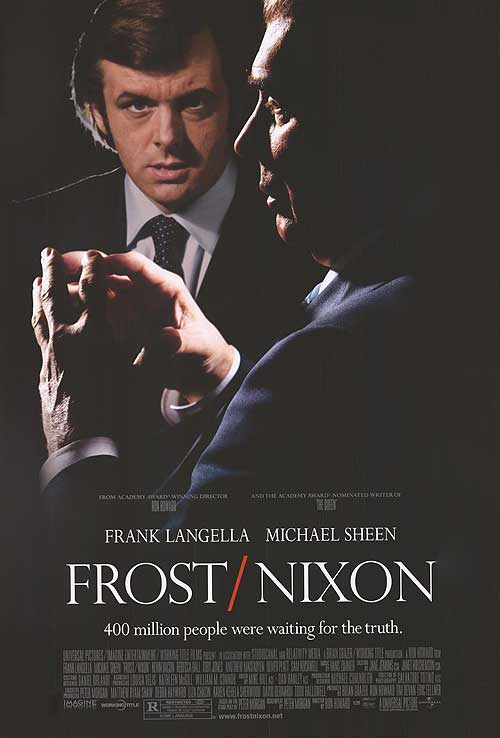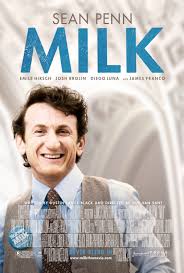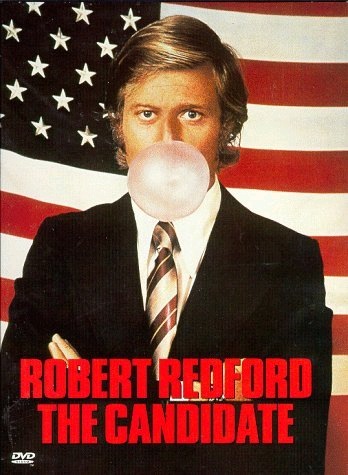
‘Selma’ heroes are plentiful,
if searing images are not
“Selma,” like its 2014 contemporaries “American Sniper” and “Foxcatcher” and “The Theory of Everything,” is a moving and watchable film.
All, unfortunately, are more re-creation than movie.
As a tribute to the Rev. Martin Luther King Jr., there will be few better than Ava DuVernay’s “Selma.”
As cinematic drama, “Selma” falls short of its inevitable comparison, 1989’s “Mississippi Burning,” directed by Alan Parker.
The latter movie is acclaimed for its relentless vigor and panned for its choice of white heroes. Yet “Burning” is the only one of the two to raise the overriding question, from Willem Dafoe in one of the greatest lines of cinematic history: What’s wrong with these people?
“Selma” unfortunately is far less concerned with visual flourish than with the sentiments expressed by MLK. Without the rights to King’s actual speeches, “Selma” filmmakers were required to create their own. All of the words ring sincere. They are simply overused, turning so many conversations into elongated pronouncements at the expense of its most glorious scenes, those long lines of people on the bridge.
As in many biopics, unfortunately the most powerful images of “Selma” are the raw black-and-white ending footage of the time, the crowd on the bridge, marching, being jeered. In “Selma” the end game is people voting. Yet such images are never shown, before or after the march, presumably deemed static and/or uninteresting.
Ask most Americans what the Rev. Martin Luther King is best known for, and you likely will hear the “I Have a Dream” speech. That puts “Selma” in a very select category, with Steven Spielberg’s 2012 film “Lincoln.” Both films depict an extremely famous person not during his most famous event, but in its aftermath, effecting a milestone achievement.
Unfortunately, production of legislation is visually boring, to the point it can’t really be shown. To thrive, “Selma” and “Lincoln” must depict their protagonists as larger-than-life, irreplaceable figures.
According to interviews, David Oyelowo was a part of the “Selma” project from the beginning, which presented a significant risk. A wonderful actor, he lacks the stature of Daniel Day-Lewis, who elevated Abraham Lincoln to savior. Oyelowo’s King is a next-door-neighbor type unfazed by his own presence. Those with limited knowledge of the civil rights movement might well conclude this is just another month’s work for its leader. The advantage to this approach is the latitude it gives to the many other heroes, the students, women, senior citizens and white supporters.
The actor who stands out in this picture is Tim Roth, as Alabama Gov. George Wallace. His is a tragic portrayal, not so much a rancorous reactionary but a politician of immense skill and considerable potential likability who seems so close to doing the right thing, only to hide cleverly behind technical legalese.
“Selma” almost instantly took heat from Lyndon Baines Johnson circles for its depiction of the president as a reluctant ally who put politics ahead of progress. Whatever his true sentiments, Johnson did not belong in this film. Unlike “Lincoln,” LBJ doesn’t waste time with raucous hearings in the Capitol. Every so often, almost on cue, he’s summoned for another frustrating Oval Office discussion in which some parties are going too fast and others are going too slow and nobody really has any idea what’s so pressing in Congress that we can’t conduct a simple vote on this matter.
Screen text, albeit often cleverly punctuated with FBI terminology, regularly supplies the background that the visuals can’t.
Curiously, “Selma” is less interested in King’s “I Have a Dream” speech than with his Nobel Prize. Presumably this is because the filmmakers did not have the rights to the “Dream” words; perhaps they also wanted to set apart the Johnson era rather than open the door to King’s dealings with JFK.
“Selma” suffers from another problem shared with a 2014 contemporary, “American Sniper” — a nagging wife. While the rest of the world keeps one scorecard, another one for some reason must be kept domestically as to the shortcomings of the family man. Carmen Ejogo is beautiful as Coretta Scott King; unfortunately her chief role is chiding her husband for his shortcomings. For as much chuckling as the “Rocky” sequels receive, at least they give the wife something to do.
One question never asked in history classes — perhaps because, if answered negatively, could put them out of business — is how much value to society exists in re-creating historic injustices. A common refrain is, “Never forget.” TV programs of the Nazi era abound. Every year, a movie with Holocaust references emerges. Is society better off with constant reminders of 1930s Germany, informing millennials of this atrocity ... or perhaps with quiet acknowledgments of the past and by letting people of 2014 judge the world as it exists around them. This page will not attempt to answer that question, only observe that the making of “Selma” is another indication the cinematic world agrees with the former, not latter.
There are enormous, overriding issues very fertile for “Selma” that go untouched. Here is the critical, historical problem: A minority of people are fanatically ruling the majority as second-class citizens. Some would call it an apartheid state. The majority demand basic human rights. They achieve it through courage, by pushing the envelope, by exposing the injustice. For a more perfect union, they still need the people they are defeating, their infrastructure, their sense of order (applied fairly) ... their cooperation ... and that is the unfinished business of “Selma.”
3 stars
(January 2015)
“Selma” (2014)
Starring David Oyelowo as Martin Luther King Jr. ♦
Carmen Ejogo as Coretta Scott King ♦
Jim France as Gunnar Jahn ♦
Trinity Simone as Girl #1 ♦
Mikeria Howard as Girl #2 ♦
Jordan Christina Rice as Girl #3 ♦
Ebony Billups as Girl #4 ♦
Nadej k Bailey as Girl #5 ♦
Elijah Oliver as Boy #1 ♦
Oprah Winfrey as Annie Lee Cooper ♦
Clay Chappell as Registrar ♦
Tom Wilkinson as President Lyndon B. Johnson ♦
Giovanni Ribisi as Lee White ♦
Haviland Stillwell as President's Secretary ♦
André Holland as Andrew Young ♦
Ruben Santiago-Hudson as Bayard Rustin ♦
Colman Domingo as Ralph Abernathy ♦
Omar J. Dorsey as James Orange ♦
Tessa Thompson as Diane Nash ♦
Common as James Bevel ♦
Lorraine Toussaint as Amelia Boynton ♦
David Morizot as Assaulting White Man ♦
David Dwyer as Chief Wilson Baker ♦
E. Roger Mitchell as Frederick Reese ♦
Dylan Baker as J. Edgar Hoover ♦
Ledisi Young as Mahalia Jackson ♦
Kent Faulcon as Sullivan Jackson ♦
Merriwether Stormy as Jackson's Daughter ♦
Niecy Nash as Richie Jean Jackson ♦
Corey Reynolds as Rev. C.T. Vivian ♦
Wendell Pierce as Rev. Hosea Williams ♦
Stephan James as John Lewis ♦
John Lavelle as Roy Reed ♦
Trai Byers as James Forman ♦
Lakeith Lee Stanfield as Jimmie Lee Jackson ♦
Henry G. Sanders as Cager Lee ♦
Charity Jordan as Viola Lee Jackson ♦
Stan Houston as Sheriff Jim Clark ♦
Tim Roth as Gov. George Wallace ♦
Greg Chandler Maness as Aide ♦
Nigel Thatch as Malcolm X ♦
Stephen Root as Colonel Al Lingo ♦
Michael Papajohn as Major Cloud ♦
Brian Kurlander (voice) as Voice on Recorder ♦
Jeremy Strong as James Reeb ♦
Elizabeth Wells Berkes as Marie Reeb ♦
Tara Ochs as Viola Liuzzo ♦
David Marshall Silverman as Anthony Luizzo ♦
Charles Saunders as Gerry ♦
Dexter Tillis as Angry Marcher ♦
Cuba Gooding Jr. as Fred Gray ♦
Alessandro Nivola as John Doar ♦
Michael Shikany as Archbishop Iakovos ♦
Brandon O'Dell as Reeb's Companion ♦
Dane Davenport as Klansman #1 ♦
Brandon Carroll as Klansman #2 ♦
Mark Cabus as State Attorney ♦
Christine Horn as Female Marcher ♦
Dan Triandiflou as ABC Journalist ♦
Jody Thompson as White Marcher ♦
Kenny Cooper as Black Marcher ♦
Montrel Miller as Young Marcher ♦
Charles Black as Elder Marcher ♦
Zipporah Carter as Self Defense Trainee ♦
Willean Lacy as Self Defense Trainee ♦
Dawn Young as Volunteer Doctor ♦
Kathy Alderman as Angry white woman ♦
Tim Battle as Dallas County Deputy ♦
Scotty Bishop as Racist Spectator ♦
Charles Black as Elderly Marcher ♦
Andrew Bleidner as LBJ's Marine Guard / White House Aide ♦
Qualen Bradley as Male Marcher ♦
Aaron Brewstar as Alabama state trooper / Selma Alabama police ♦
Ronan Brookes as Montgomery Police Officer ♦
Jeffery James Bucchino as Congressman ♦
Christopher Anthony Carr as Racist Spectator / White Marcher / Press background ♦
Ashlei Sharpe Chestnut as Church / Funeral Attendant ♦
John Collier as Montgomery Police Officer ♦
Clint Crane as National Guardsman ♦
Shannon Edwards as Senator ♦
Raven Ferguson as Female Marcher ♦
Ryan Fontaine as National Guardsman ♦
Samuel Lee Fudge as Young Marcher ♦
J.J. Green as Marcher ♦
AngelAnn Green-Orr as Church Attendant, Funeral Attendant, Diner student, speech attendant, Aide ♦
Roger A. Harrison as Senator ♦
Walter Hendrix III as AA eFx Marcher ♦
Donald Horner as Court room attendant ♦
Thomas Hughes as Deputized Klansman ♦
Wayne Hughes as Vice President, Hubert Humphrey ♦
Amy Elizabeth Jones as Marcher ♦
Andrea Jones as Marcher ♦
Thom McGlon as Sheriff Posseman ♦
Kyle McMahon as Senator John J. Williams ♦
John Merical as Reporter ♦
Gordon Meyer as Deputy Sheriff ♦
Joseph Oliveira as National Guardsman ♦
Amahre Palmer as Civil Rights Activist ♦
Todd Sassano as National Guardsman ♦
Patti Schellhaas as Congressional Aide ♦
Carol Anne Taylor as White Supporter / Singer ♦
Jasmine Taylor as Female Marcher ♦
Mike Taylor as Man on Street ♦
Travis Turner as Press / Reporter ♦
Earlene M. Vaughn as Marcher ♦
Rachelle Wicker as Female Marcher / Funeral Attendee
Directed by: Ava DuVernay
Written by: Paul Webb
Producer: Oprah Winfrey
Producer: Christian Colson
Producer: Dede Gardner
Producer: Jeremy Kleiner
Executive producer: Ava DuVernay
Executive producer: Brad Pitt
Executive producer: Nik Bower
Executive producer: Paul Garnes
Executive producer: Kiran Bhakta Joshi
Executive producer: Cameron McCracken
Executive producer: Diarmuid McKeown
Executive producer: Nan Morales
Cinematography: Bradford Young
Editing: Spencer Averick
Casting: Aisha Coley
Art direction: Kim Jennings
Set decoration: Elizabeth Keenan
Costume design: Ruth E. Carter
Makeup and hair: Beverly Jo Pryor, Melissa Forney, Judy Murdock, Pierce Austin, Travis Pates, Bill Myer, Myke Michaels, Char Coats-Crump, Seleena Miller, Fawn Ortega, Kellie Robinson, Keitric Starks, Louisa V. Anthony, Andrea C. Brotherton
Stunts: Jeremy Sample, Brent Bernhard, Tye Claybrook Jr., Tim McAdams, Raven-Danielle Baker, Shellita Boxie, Scheryl W Brown, Donny Carrington, Nicholas Hayner, Mark Hicks Jr., Damita Jane Howard, Josh Lakatos, Scott Loeser, Keith Meriweather, Greg Sproles, Christopher Tardieu, Todd Rogers Terry, Tommie Turvey, Cody Robinson, Ryan Robertson, Alan D’Antoni, Nadej k Bailey, Jwaundace Candece, Keith Davis, Jazzy Ellis, John Herndon, Mikeria Howard, Floyd Anthony Johns Jr., Kevin Morgan, Dan B. Norris, Trinity Simone, Todd Warren, Josh Mueller, Blake Pocquette
Thanks: Gordon Bobb, Rand Holston, Janssen Robinson, Nina Shaw, Ben Weiss





